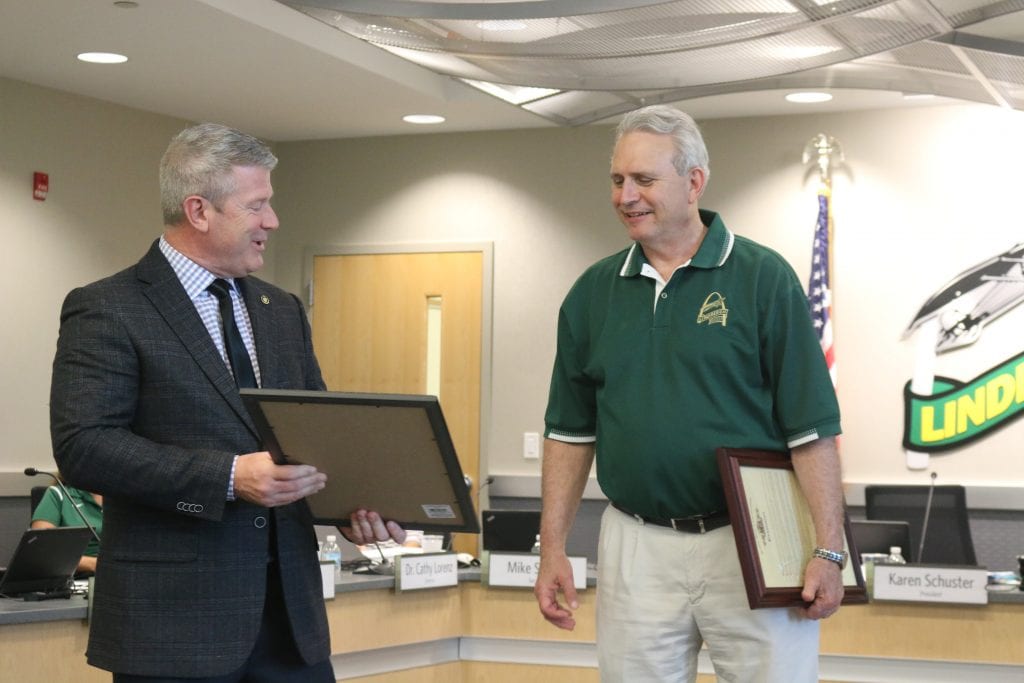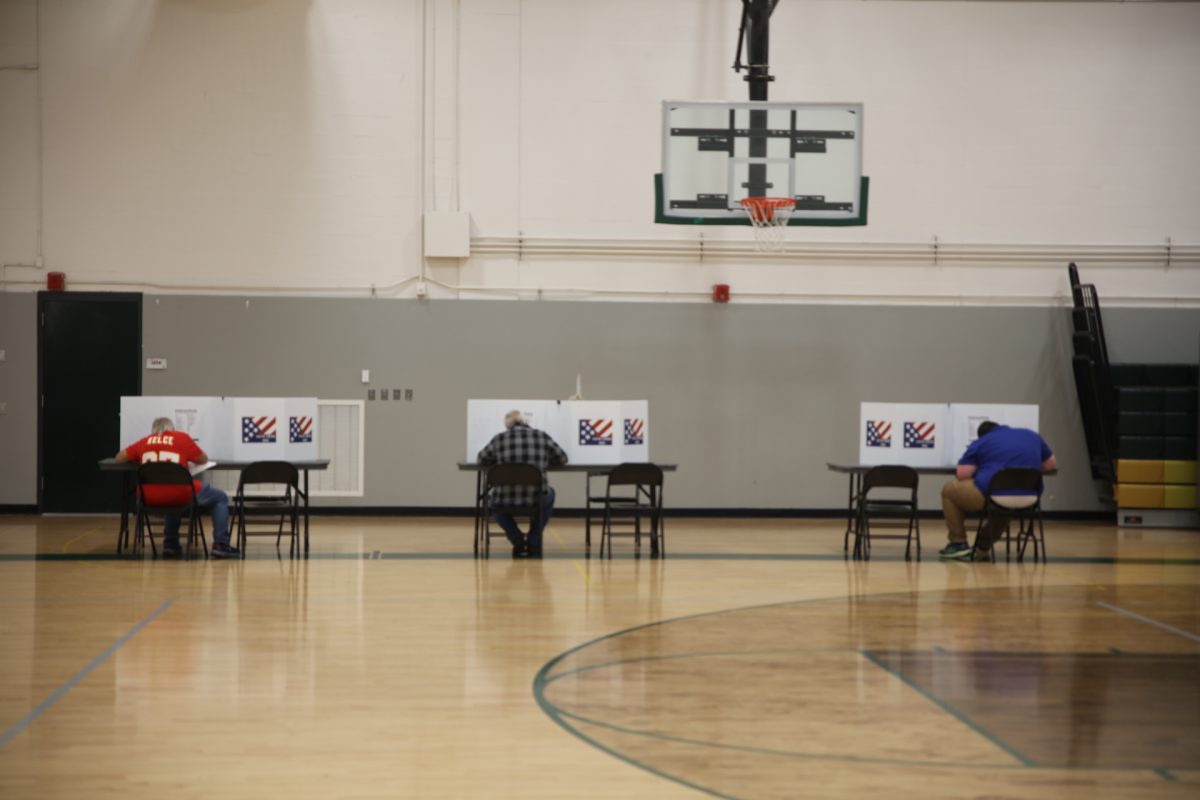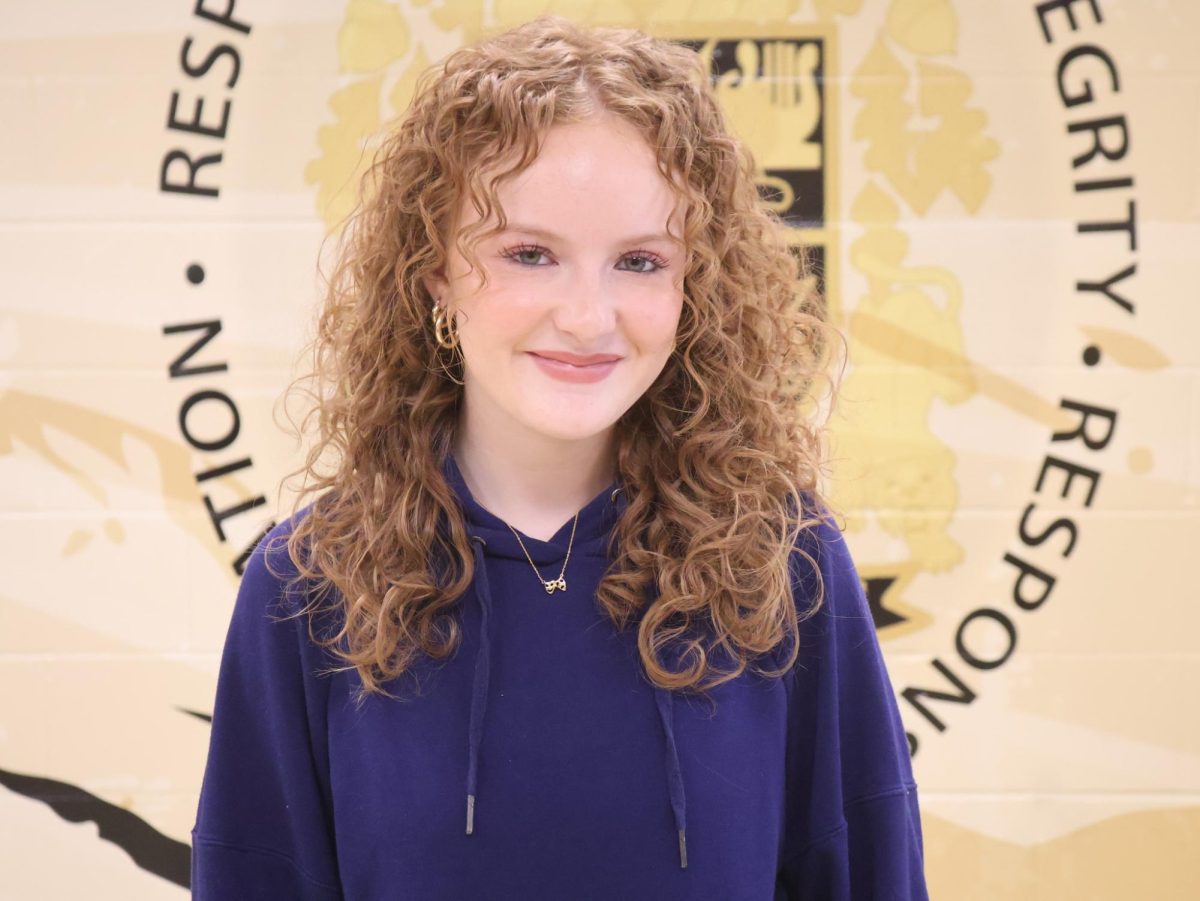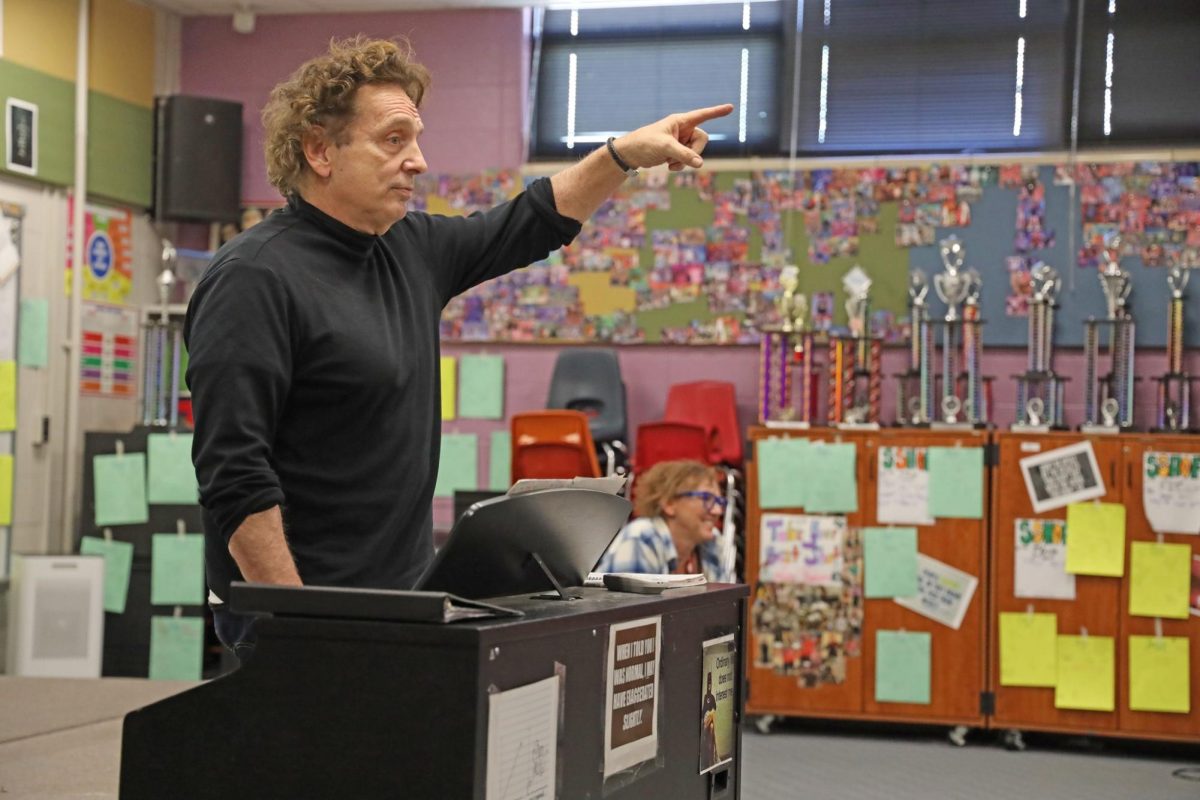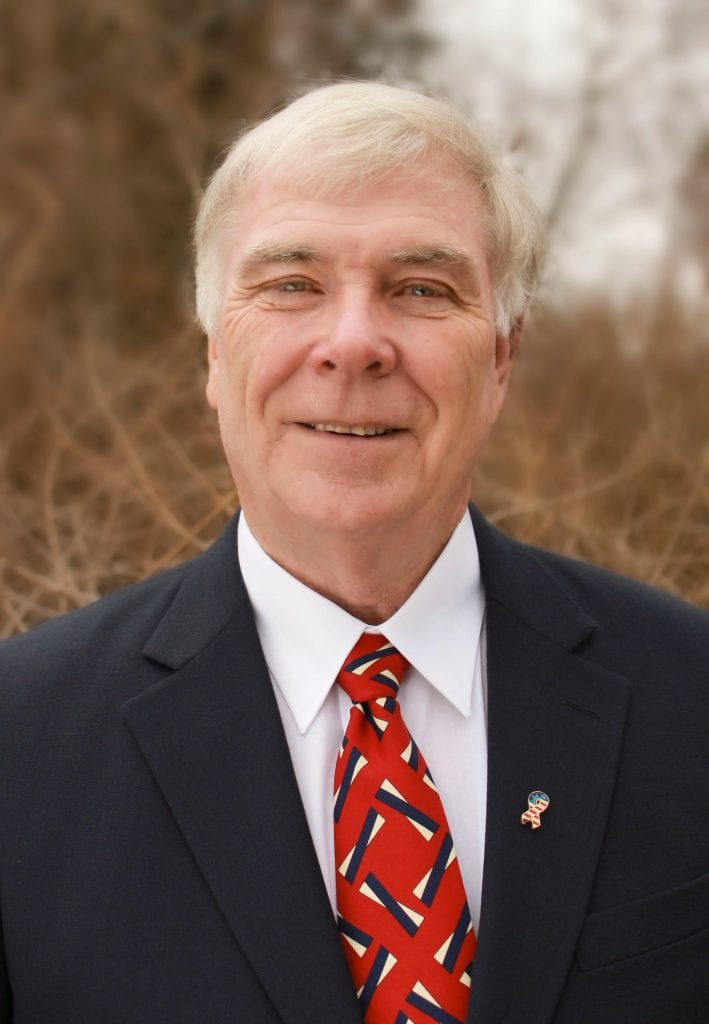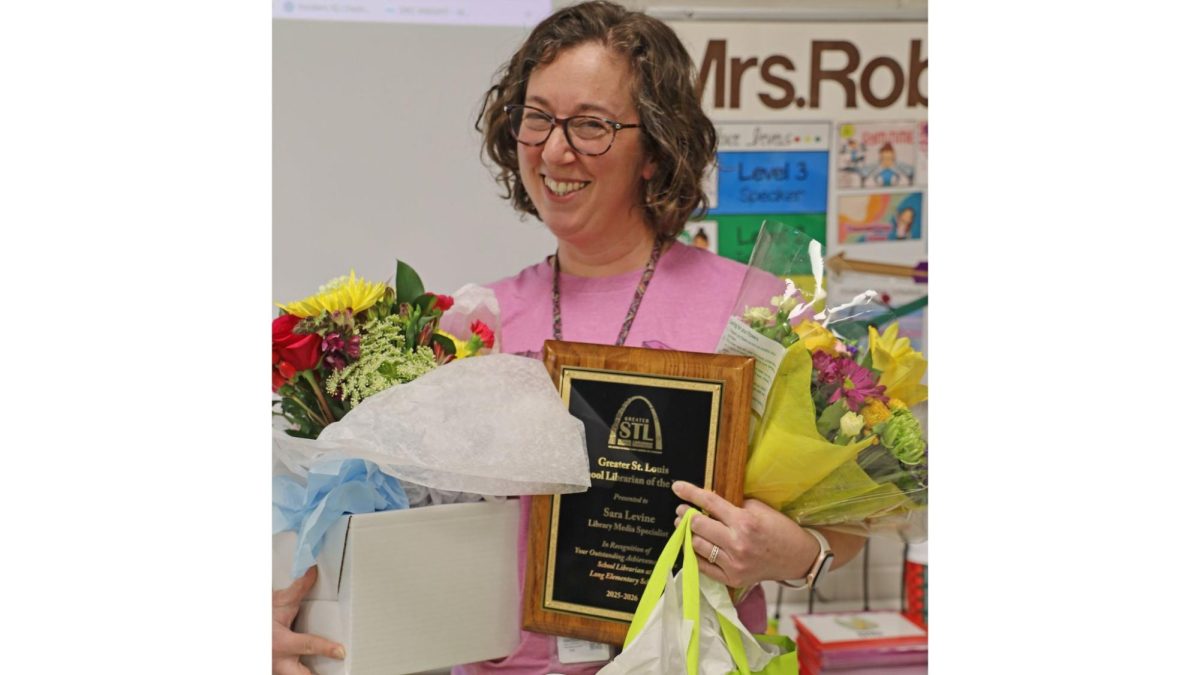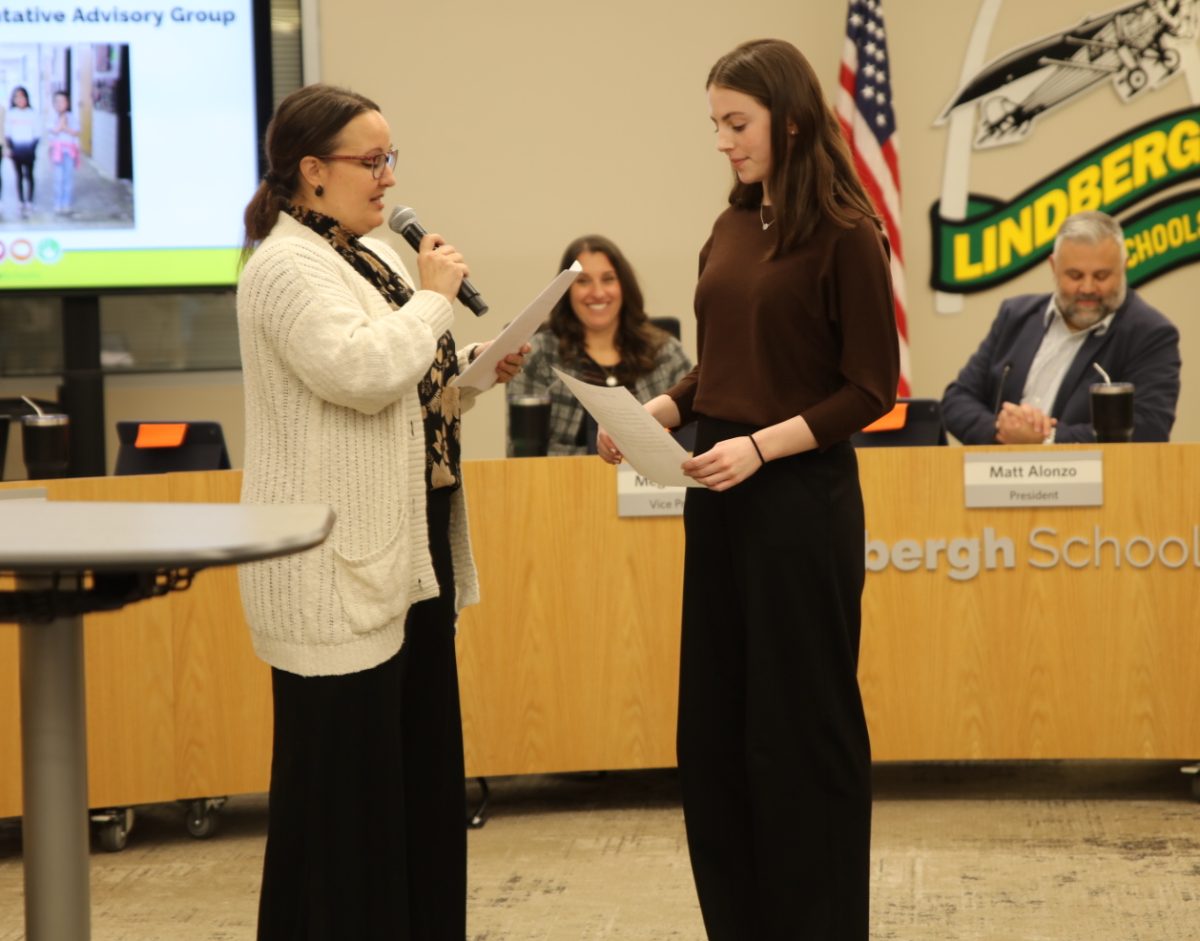Rep. Doug Beck, D-Affton, presents a legislative commendation to retiring Lindbergh Superintendent Jim Simpson in June.
By Gloria Lloyd
News Editor
glorialloyd@callnewspapers.com
One of the topics that Missouri legislators focused on in this week’s special session is education.
Gov. Mike Parson called legislators back to expand access to STEM education, or education that focuses more on science, technology, engineering and mathematics — a topic that nearly all legislators seem to agree on.
But on the broader topic of public education and how to approach funding it, legislators from south county occupy both sides of the political spectrum, with some passionately defending public education and some objecting to the idea altogether.
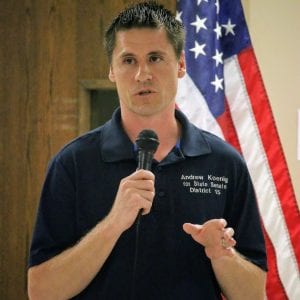
On one side, Rep. Bob Burns, D-Affton, said at a town hall at South County Technical High School in Sunset Hills, “I’m a fan of public education. I personally think that public education is the most successful program in the history of our country because it educates the populace.”
He is joined in his vocal support of public schools by Rep. Doug Beck, D-Affton, and Sen. Scott Sifton, D-Affton, both former members of the Affton Board of Education who continually advocate for more education funding.
And on the other side of the spectrum, south county’s other senator Sen. Andrew Koenig, R-Manchester, questions the current practices of public education and says more students need to be enrolled in private schools.
“I like to call them government schools rather than public schools,” Koenig told the Tesson Ferry Republican Club.
That’s why he supports efforts to increase charter schools and education-savings accounts, which some people refer to as vouchers. Those would allow people to redirect current school tax dollars to pay for private education expenses.
“I’m a big believer in school reform or school choice,” Koenig said. “Competition is good. I mean, who here wants one gas station in St. Louis? You want lots of gas stations, you want choice. And choice makes everybody better.”
With that choice, residents might be able to avoid some of the teachings of public schools, which Koenig sees as substandard, especially in science classrooms.
He prefers that schools teach a curriculum more aligned to the Bible rather than just from science textbooks.
“Too often it’s more of an atheistic viewpoint, and they refuse to teach the other side,” Koenig said of public-school curriculum.
The senator contends that schools should focus on not just teaching evolution in science class, but also instruct students on more of a creationism-focused viewpoint.
“They don’t even teach the flaws in evolution,” he said of science teachers.
One of those flaws, Koenig believes, can be seen in the four-winged fruit fly, which was created by scientists in a lab to demonstrate aspects of evolution such as how modifying a gene can change the entire structure of a species. The line of inquiry led to a Nobel Prize in 1996.
“You hear, ‘Oh, that’s a perfect example of evolution,’” Koenig said. “But the thing can’t fly and can’t reproduce. A lot of these genetic mutations are detrimental to the organism. Surely there’s microevolution that happens, but macroevolution we have not experienced. And our public schools, they just don’t teach the other side.”
As another example from science, Koenig pointed to the bacterial flagellum, which is comprised of over 40 proteins.
It is so complex that it could only have been designed rather than developed over time through evolution, he said.
“One protein is out of place and it doesn’t work — how do you build a bacterial flagellum over millions of years if it just simply doesn’t work?” Koenig said. “Unfortunately they’re not teaching that in our public schools, and I like to give parents choices so that they can achieve what their kids are being taught.”
But some of south county’s schools are the finest in the country, Burns countered at his town hall.
“When you hear that public education is just not what it used to be, check it out for yourselves because we have some of the finest schools in the country, and particularly in our state, in south county and in St. Louis,” Burns said.
Beck said sometimes when it comes to education, “perception is reality,” but anyone who visits schools on the cutting edge of changing education like South County Tech will come away with a different view. Beck collaborated on a joint town hall there in April with Burns, Rep. Sarah Unsicker, D-Shrewsbury, and Rep. Deb Lavender, D-Kirkwood.
Education funding in dispute
Aside from the more philosophical viewpoints on the importance or lack thereof of public education, most of the disputes around education are about how to pay for it.
This year, legislators cut $25 million from the foundation formula for public schools, on top of a $50 million cut last year.
That’s the equivalent of almost the entire budget of Truman State University, Sifton pointed out at a joint meeting of the Affton and Lemay chambers of commerce.
Burns said that Republicans “had the audacity to zero out the foundation formula,” which was said to be $450 million underfunded before that maneuver.
“Then they zeroed it, and now they say, ‘Well, we continue to fully fund public education’ — no they don’t, and it’s educating at least 90 percent of youngsters in our country and in this state,” Burns said.
Beck also took aim at the GOP’s stance on fully funding education.
“So if you have a 12-ounce glass of water and you’re only getting eight ounces, what they’ve done is reduce that glass to eight ounces,” Beck said.
Doing the math with that $450 million reduction and another one this year, in just a few years the GOP’s formula funding provides several billion dollars less than what schools were otherwise slated to get, he noted.
And while former Gov. Eric Greitens touted his administration’s achievement in not cutting funding inside classrooms, the Legislature has continued to cut transportation funding. As schools pay more for buses, some have had to cut back on the classroom. In rural Missouri, 13 school districts have gone to four-day school weeks because they can’t afford a fifth day of busing.
As transportation funds are cut, other school funds have to subsidize that missing money, Beck said.
“You can definitely see that we’re not fully funding education,” he said. “So those are things I’d like to work on. Those would be my priorities.”



